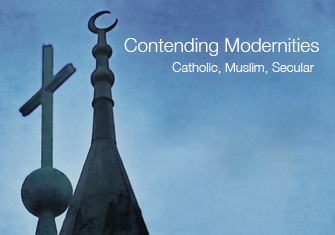 On November 18-19, dozens of scholars, religious leaders, business people, and intellectuals will gather in New York for the public launch of a new, multi-year project called “Contending Modernities: Catholic, Muslim, Secular.” Based on the premise that Catholic, Muslim, and secular modernities each bring distinctive resources to the task of illuminating and resolving an array of characteristically modern problems, the project will examine the dynamic co-existence and competition of these “multiple modernities”—as well as the conflicts and contentions among them—with the aim of opening “new paths for constructive engagement between and among religion and secular people and institutions.”
On November 18-19, dozens of scholars, religious leaders, business people, and intellectuals will gather in New York for the public launch of a new, multi-year project called “Contending Modernities: Catholic, Muslim, Secular.” Based on the premise that Catholic, Muslim, and secular modernities each bring distinctive resources to the task of illuminating and resolving an array of characteristically modern problems, the project will examine the dynamic co-existence and competition of these “multiple modernities”—as well as the conflicts and contentions among them—with the aim of opening “new paths for constructive engagement between and among religion and secular people and institutions.”
In anticipation of the launch of this new project, we asked a distinguished group of scholars: What is gained by framing research on religion, secularity, and modernity in terms of “multiple” or “contending” modernities, and what “new paths for constructive engagement” might such a frame afford?
R. Scott Appleby, John M. Regan Jr. Director, Kroc Institute for International Peace Studies, and Professor of History, University of Notre Dame
Lisa Sowle Cahill, J. Donald Monan Professor, Department of Theology, Boston College
Jocelyne Cesari, Research Fellow in Political Science; Director, Islam in the West Program, Harvard University
Robert W. Hefner, Professor of Anthropology; Director, Institute on Culture, Religion, and World Affairs, Boston University
Sherman Jackson, Professor of Arabic and Islamic Studies, University of Michigan
Slavica Jakelić, Fellow; Director, “Secularism in the Late Modern Age” Project, Institute for Advanced Studies in Culture, University of Virginia
Bernice Martin, Emeritus Reader in Sociology, University of London
David Martin, Honorary Professor of Religious Studies, Lancaster University; Emeritus Professor of Sociology, London School of Economics
Martin E. Marty, Fairfax M. Cone Distinguished Service Professor Emeritus, University of Chicago
Aminah McCloud, Professor of Islamic Studies; Director, Islamic World Studies Program, DePaul University
Robert Orsi, Professor of Religion, Grace Craddock Nagle Chair in Catholic Studies, Northwestern University
Eboo Patel, Founder and President, Interfaith Youth Core
Christian Smith, William R. Kenan, Jr. Professor of Sociology; Director, Center for the Study of Religion and Society, University of Notre Dame
______
R. Scott Appleby, Professor of History; John M. Regan Jr. Director, Kroc Institute for International Peace Studies, University of Notre Dame
 Modernity, scholars now agree, is not a linear, a priori, exclusively Western-originated, inspired, or driven project. “It” takes multiple forms, admits of no discernible telos, and emerges from discursive communities with both overlapping and incommensurate epistemologies and worldviews.
Modernity, scholars now agree, is not a linear, a priori, exclusively Western-originated, inspired, or driven project. “It” takes multiple forms, admits of no discernible telos, and emerges from discursive communities with both overlapping and incommensurate epistemologies and worldviews.
To make matters all the more complex, these supposedly self-contained discursive communities are themselves internally plural, and their priorities and self-understandings internally contested. Not least, they are culturally, economically, and physically “all over the map.”
All of this is good news for religious communities, especially, which not so long ago were considered virtually irrelevant to “the project.” Now that there clearly are projects, and now that the overlapping secular versions are understood not to exhaust the continuing quest for a way forward that draws on humanity’s full reserves of experience and accumulated wisdom, space opens for multiple religious contributions.
The various discursive communities all have a stake in how the plots and subplots of the modernities unfold. “New paths for constructive engagement” will be opened only when they gather to examine the trajectories—of science, education, authority, migration, interpretation, pluralism—which they have had a hand in creating, accommodating, or resisting, and which have shaped each of them in turn.
Then the question becomes: how to translate disparate historical experiences into platforms or frames for deliberating and acting together for global justice?
Not everyone can or will play: these worlds are vast and divided, with remote or inaccessible parts. But the crosscultural conversation has already begun, and now it must become ever more explicit and, as possible, inclusive.
______
Lisa Sowle Cahill, J. Donald Monan Professor, Department of Theology, Boston College
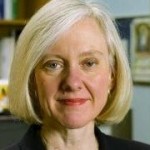
“Modernity” brings global movements for democracy, women’s rights, human rights, and the environment. It also carries increased conflict within states, huge gaps between rich and poor, climate change, “superpower” hegemony, and global economic collapse.
Religious traditions respond to modernity in distinctive ways. Modern Catholicism has developed a universalizing language of the common good, mutual rights and duties, and global social justice. Catholicism aspires to be a moral voice for all citizens of “the modern world.” Modern Islam, in contrast, often prizes a distinctive way of life under God, holistically integrating prayer, piety, family relations, social norms, and law. Islam aspires to preserve its identity and agency against modernity’s incursions and “Western” dominance.
“Contending Modernities” will increase understanding and respect between these different worldviews. More importantly, each can assist the other to renegotiate what it means to live faithfully before God and responsibly in a global environment. The dynamic of productive and self-critical interreligious “contention” is essential to meeting shared modern challenges constructively and creatively.
Since global problems reach across religious and cultural divides, it is often assumed—erroneously—that nonideological “secular” reasoning and politics are the only way to solutions.
But there is no such thing as a “neutral” and “objective” secular sphere. “Secularity” is itself grounded in particular historical experiences, such as Enlightenment resistance to religious authority, sixteenth-century religious wars in Europe, evolving democratic regimes, growth of market capitalism, and defending the rationality of Western nation states and their agendas.
In addition, the world’s cultures are more religious than secular. At a purely practical level, it is essential to engage religious communities on issues like war, poverty, and environmental degradation. Religions are powerful shapers of actual convictions and behavior, as people and cultures come to terms with “modernity’s” opportunities and problems.
______
Jocelyne Cesari, Research Fellow in Political Science; Director, Islam in the West Program, Harvard University
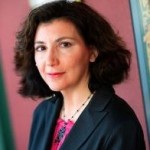
Democracy, secularism, religion, and modernity are central terms in common parlance and in the social sciences as well. While they often claim universal application, their definitions have seldom applied to state and society relations in non-Western nations. Consider the most dominant theories about global Islam.
Because today’s transnational manifestations of Islam emerged from a process of political modernization in post-colonial Muslim states, the traditional Western narrative of modernization cannot accurately inform Islam’s emergence as an international force. This Western narrative is grounded in the concept of enlightenment—the understanding that political development drives and is fueled by the decline of religion. Put another way, the Western narrative links modernization to secularization. The modernization of political and social culture results in the marginalization of religion in public sphere.
This Western narrative, however, is inconvenienced by today’s political Islam, which is a product of, rather than anathema to, political modernization. While this is well known to scholars specializing in Islam, these historical lessons have failed to permeate mainstream discourse of religion or international politics. Most foreign policy experts assume that political Islam marks a return to the Islamic tradition, when, in fact, agents of the various movements in political Islam depart radically from classical Islamic thought. Their visions are not shaped by tradition, but nationalism, communism, and other secular ideologies.
While modernity led to democracy and political liberalization in Europe, modernity helped usher-in Islam as a political force in Muslim countries whose post-modern reality is short on liberal ideologies and value-relativism.
That modernity of the Islamic world spawned religious revival rather secularism, and political liberalization also means that the West needs to redefine modernity. And by redefining modernity, you also redefine the nature and meaning of the traditional Western narrative with which the West has grown so comfortable.
Some scholars have begun to reconsider how to redefine modernity, like late Samuel Eisenstadt from whom the Contending Modernities borrow its plural approach. But old ways of thinking are hard to shake. Thus, there is still a lot to do to improve understanding of the complex connections between politics, society, and non-Western religions, especially Islam. Given these conditions, any research initiative that attempts to de-center the Western narrative is not only academically but also politically relevant.
______
Robert W. Hefner, Director, Institute on Culture, Religion, and World Affairs, and Professor of Anthropology, Boston University
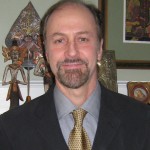
There are both risks and benefits to employing the idea of multiple modernities as, not merely an artifice of academic debate, but an instrument for dialogue across and within civilizational communities. As the concept has achieved academic currency, its meaning has become more contested than consensually secure. For scholars of a Nietzschean persuasion, the concept has served as a clarion call for highly intellectualized analyses of the genealogy of “Western” as opposed to Muslim, Hindu, Chinese, or other traditions. Typically these analyses proceed by way of a key text or author who, as with Immanuel Kant and liberalism, is thought to have become an intellectual paragon in the tradition’s modern social imaginary. While this approach has had the salutary effect of encouraging social historians and sociologists to take legal and philosophical scholarship seriously, it has at times portrayed civilizations as more insular and intellectually coherent than, in my view, they actually are.
Modernity is thoroughly multiple. But each of the civilizational traditions active in our age is internally pluralized, contested, and, viewed from the glorious heights of its philosophical icons, inconsistent. The logic of a civilization’s practice cannot be reduced to the prophets or sages who, at various times, have provided it with canonical ethical references.
If interpreted as Scott Appleby and the organizers of the “Contending Modernities” project have suggested, however, the multiple modernities paradigm can yield great benefit. If I read them correctly, Appleby and his colleagues premise their project on three ideas. First, they suggest that each civilizational tradition brings distinctive intellectual and ethical resources to the modern age. But these resources are never finished or fully consistent, because they take on new meanings confronting the challenges of each age. Second, Appleby et al. emphasize that to understand the power and relevance of received ethical traditions, one must devote as much attention to the novel circumstances each tradition confronts as to foundational ideas. Each tradition today is marked by its reflexive interaction with modern plurality, migration, and hybridity as well as with rediscovered masters.
Third and last, by highlighting the challenges widespread in our age, Appleby and his colleagues remind us that a decisive influence on all future dialogues across and within civilizations will be the efforts of public intellectuals to achieve a greater measure of mutual recognition across traditions. At a time when some contemporary faith traditions, not least of all the Muslim, are being parodied and distorted in the popular media, Appleby and his colleagues’ effort is a most welcome initiative indeed.
______
Sherman Jackson, King Faisal Chair in Islamic Thought and Culture and Professor of Religion and American Studies and Ethnicity at the University of Southern California
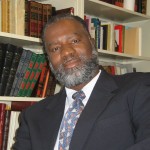 Theology is ultimately a discourse about the nature of God, i.e., “logos on theos.” While it had its place in what became the normative expressions of Islam—Sunni, Shiite and even Kharijite—with which all subsequent Muslim history would inexorably remain in conversation, it was hardly synonymous with Islam. In fact, pre-modern Muslim writings on theology pale in comparison with what Muslims produced in the area of ‘law’ (sharî‘ah) and even Sufism. The encounter, however, between Christianity and secularism in the emergent West entailed both a presumption about and a redefinition of the relationship between theology and religion. The place of theology in Christianity was assumed to be the place of theology in ‘religion’. This led to the notion that religion could be preserved and duly ‘tolerated’ to the extent that we tolerate competing results of “logos on theos.” It is here, in this liminal space between its own tradition, where theology is only a part of the composite reality of Islam as a ‘religion’, and the hegemonic expanse of Western Modernity, where theology is an actual metonym for religion, that Islam experiences its own unique modernity.
Theology is ultimately a discourse about the nature of God, i.e., “logos on theos.” While it had its place in what became the normative expressions of Islam—Sunni, Shiite and even Kharijite—with which all subsequent Muslim history would inexorably remain in conversation, it was hardly synonymous with Islam. In fact, pre-modern Muslim writings on theology pale in comparison with what Muslims produced in the area of ‘law’ (sharî‘ah) and even Sufism. The encounter, however, between Christianity and secularism in the emergent West entailed both a presumption about and a redefinition of the relationship between theology and religion. The place of theology in Christianity was assumed to be the place of theology in ‘religion’. This led to the notion that religion could be preserved and duly ‘tolerated’ to the extent that we tolerate competing results of “logos on theos.” It is here, in this liminal space between its own tradition, where theology is only a part of the composite reality of Islam as a ‘religion’, and the hegemonic expanse of Western Modernity, where theology is an actual metonym for religion, that Islam experiences its own unique modernity.
On the one hand, its essential—not just political—resistance to the reduction of ‘religion’ to a set of private beliefs tends to cast Muslims in a fundamentalist light, as people who insist on ‘polluting’ the public space with ‘religion’. At the same time, the power, authority and pervasiveness of Enlightenment ‘reason’ complicate access to avenues to intellectual, indeed epistemological, resistance and independence. Thus, Muslim modernity is also characterized by a liminal search for means and avenues to resistance, appropriation and production, between the provisions of Islam’s own legacy and the challenges and promises (true or false) of Western modernity. In this light, Muslim modernity differs fundamentally from non-Muslim Western modernity in that Muslims cannot ignore—even if they may escape—the prism of Western modernity. Non-Muslim Westerners, meanwhile, can still afford to look at themselves and Muslims through the prism of Western modernity, in virtual oblivion to the normative articulations and cumulative worldview of Islam. One can only wonder about the future of communication between a ‘bi-lingual’ Islam and the ‘monolingual’ modernity of the non-Muslim West.
______
Slavica Jakelić, Director, “Secularism in the Late Modern Age” Project, and Fellow, Institute for Advanced Studies in Culture, University of Virginia

“Multiple modernities” enrich our study of religions and secularity analytically and normatively. Take the example of Europe: when modernity is viewed as a universal phenomenon—a process that happens the same way everywhere—the collectivistic Christianities in Ireland, Poland, or Greece get explained away as exceptions in a secularized and secularizing Europe. In the context of ‘multiple modernities,’ such religions reveal the complexity of contemporary religious pluralism or indicate possibilities for a religious critique of late modern capitalism.
The notion of “multiple modernities” is also analytically and normatively richer than other similar notions—“contending,” “vernacular,” or “alternative” modernities—because it evokes the plurality of modernity programs without limiting what their possible interaction might be. For example, “contending modernities” suggests a struggle among versions of modernity, while “multiple modernities” highlights their co-existence. “Multiple modernities” sustains the tension between tradition and change, generalizable and particular trends. It allows us to say that modernization (industrialization, urbanization, technological development) changes all societies, structurally and culturally, yet this does not happen in a vacuum and has neither the same starting nor the same ending point. “Multiple modernities” is also normatively thicker because it is more than a rejection of the grand Enlightenment narratives. To be sure, it is a critique of the view of Western European modernity as a secular ideal that ought to be implemented everywhere (a notion that did not die with the end of the Western colonial projects, as evidenced in the EU integration processes). But it is also an affirmation that different cultural and political programs of modernity are possible, and that such plurality, wherein the religious and the secular coexist, is not just a “problem” but also a value. This is a powerful view of the world—a tool for studying religions and secularity in contemporary societies but also an ideal for how we should live together.
______
Bernice Martin, Emeritus Reader in Sociology, University of London
 I should be sorry to see the discussion confined to the three “contending modernities” specified, that is, Catholic, Muslim, and secular. The great virtue of Eisenstadt’s concept of “multiple modernities” is that it opens up recognition of an unspecified variety of paths to modernity. The path that has been preoccupying me for some years is the Pentecostal mobilizations for modernity coming out of the global South. This is excluded from the proposed debate, whereas I am convinced that it constitutes a mobilization of world-significance, particularly since, like Muslim mobilizations, it is crucially implicated in the global movement of populations within the global South and between it and the global North and West. The idea of multiple (or contending) modernities has rightly been deployed to mount an overdue critique of the Euro-American bias in classical concepts of modernity. While the culture of the old Protestant world was central to that concept, it would be a mistake to suppose that the wave of Pentecostalism that has swept the global South since the 1950s is just another Western offshoot. It is a grassroots movement with a striking capacity to carry indigenous identities into modernity, and its relationship with the other three “contending modernities” needs to be explored as seriously as theirs with each other, even though Pentecostalism lacks the geopolitical clout of Catholicism, Islam, and secular Western elites. The fact that it is a fissiparous, voluntaristic movement with no overall organizational focus or leadership should not exclude it from consideration. For that matter, it has a nascent intelligensia of its own which might well contribute to the debate
I should be sorry to see the discussion confined to the three “contending modernities” specified, that is, Catholic, Muslim, and secular. The great virtue of Eisenstadt’s concept of “multiple modernities” is that it opens up recognition of an unspecified variety of paths to modernity. The path that has been preoccupying me for some years is the Pentecostal mobilizations for modernity coming out of the global South. This is excluded from the proposed debate, whereas I am convinced that it constitutes a mobilization of world-significance, particularly since, like Muslim mobilizations, it is crucially implicated in the global movement of populations within the global South and between it and the global North and West. The idea of multiple (or contending) modernities has rightly been deployed to mount an overdue critique of the Euro-American bias in classical concepts of modernity. While the culture of the old Protestant world was central to that concept, it would be a mistake to suppose that the wave of Pentecostalism that has swept the global South since the 1950s is just another Western offshoot. It is a grassroots movement with a striking capacity to carry indigenous identities into modernity, and its relationship with the other three “contending modernities” needs to be explored as seriously as theirs with each other, even though Pentecostalism lacks the geopolitical clout of Catholicism, Islam, and secular Western elites. The fact that it is a fissiparous, voluntaristic movement with no overall organizational focus or leadership should not exclude it from consideration. For that matter, it has a nascent intelligensia of its own which might well contribute to the debate
______
David Martin, Honorary Professor of Religious Studies, Lancaster University, and Emeritus Professor of Sociology, London School of Economics
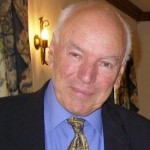 My own original formulation of “multiple modernities” was to challenge the notion that the global future was prefigured by the ideological secularism of France or the mere secularity of Sweden. The USA has been widely seen as an exception to the secularizing trend on account of several specific historical factors. These factors are mostly linked to the early separation of church and state in the USA—which some commentators now refer to as secularism, whether simply an empirical trend or an ideologically motivated social movement seeking to promote it. . . .
My own original formulation of “multiple modernities” was to challenge the notion that the global future was prefigured by the ideological secularism of France or the mere secularity of Sweden. The USA has been widely seen as an exception to the secularizing trend on account of several specific historical factors. These factors are mostly linked to the early separation of church and state in the USA—which some commentators now refer to as secularism, whether simply an empirical trend or an ideologically motivated social movement seeking to promote it. . . .
Secularization has been associated with privatization, rationalization, individualization, and social differentiation, and those who believe all these processes operative are inclined to see secularization as a universal trend consequent on, and ushering in, modernity. Those who simply emphasize social differentiation are inclined to envisage several modes of modernity, some religious and some not, and to regard Europe as exceptional rather than the USA. . . . The big issue turns around the consequences of individualization and whether there are more communitarian forms of modernity associated with (say) Catholicism and Islam.
The problem with strong versions of secularization is that societies are arranged hierarchically along scales of modernity that are simultaneously scales of secularization, and any dialogue is liable to take the form of the advanced addressing the retarded. The problem with multiple modernities is that its proponents too easily place notions of respect for “the other” above blunt judgments about the morally objectionable features of other societies as well as one’s own. It really is difficult to sort out moral evaluations from empirical theories of social development.
______
Martin E. Marty, Fairfax M. Cone Distinguished Service Professor Emeritus, University of Chicago
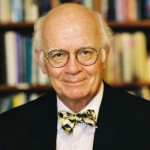
I wish that Protestants, Evangelicals, Pentecostals, etc., who make up the American majority, were invited to the party. Many of them were pioneers in shaping what gets called “modernity” and were jarred, jostled, or inspired by it. Is it proper or immature to complain about not being invited to a party? Still, there is much to affirm in the threefold focus of this event. Cosmopolis, Globalization, Regionalism, and more will inform those who train their social scientific microscopes on part of just one of the three overlapping and huge communities mentioned.
Define “modernities” however you wish, and you will find that the religiously-based cultural experiences differ significantly. Does modernity mean, to the religious-and-secular, the legal and cultural differentiation between religion and regime, or the separation of church and state? In most Islamic-run nations such separation has not yet occurred, and efforts to bring about change are tense. Does “modernity” refer to the experience of pluralism? Here, again, religious movements, forces, themes, and ideologies differ vastly. Relativism challenging absolutism? “Compare and contrast,” as our old college examinations asked us to do.
The comparative study can serve to help people in the different polities better prepare for positive change and reaction to it. Also, if there are commonalities of experience, that will show and will be informative. A score of years ago, the American Academy of Arts and Sciences had us compare militant religious fundamentalisms in a score of movements in diverse nations. What surprised us was the discovery or illuminations of features that most of them had not acknowledged or recognized, but which became patent when the eyes of the comparativists looked at them. I’ll wager that something like that difference-and-likeness dialectic will be vivid in the November 18-19 events and their inevitable follow-ups.
______
Aminah McCloud, Director, Islamic World Studies Program, and Professor of Islamic Studies, DePaul University
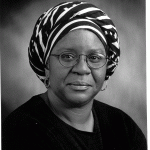 I think that framing the research on religion, secularity, and modernity in terms of “multiple” or “contending” modernities is a good frame. I prefer “multiple,” however, as the adjective does not presuppose conflict from the outset, though issues of power are always present. Since religion has reasserted its public voice loudly in contentious ways—often making more issues than solving them—the research is timely, though the categories are curious. Often we have separated, or at least sought to separate, the religious from the secular, forgetting that religious people work in secular institutions and secular people work in religious organizations. All would probably say that their vision of modernity is a long way from the reality that they live with and all of its attendant problems.
I think that framing the research on religion, secularity, and modernity in terms of “multiple” or “contending” modernities is a good frame. I prefer “multiple,” however, as the adjective does not presuppose conflict from the outset, though issues of power are always present. Since religion has reasserted its public voice loudly in contentious ways—often making more issues than solving them—the research is timely, though the categories are curious. Often we have separated, or at least sought to separate, the religious from the secular, forgetting that religious people work in secular institutions and secular people work in religious organizations. All would probably say that their vision of modernity is a long way from the reality that they live with and all of its attendant problems.
Each vision of modernity, of course, is accompanied by a vision of how that modernity should proceed and who should lead the way. Are these views actually contending? No, since contention would imply a level playing field. Secular organizations have provided spaces where people of different faiths can come together to work on specific issues or attend to specific concerns. Religious communities have a wealth of resources to draw upon to address “characteristically modern problems.” However, their visions of where the heart of the problem lies may be different. One path of constructive engagement could concern a “hearing” of both similarities and differences regarding the root cause of issues and then a mediation on which strategies can reflect the resources of each community.
______
Robert Orsi, Professor of Religion, Grace Craddock Nagle Chair in Catholic Studies, Northwestern University

Who could object to any project that furthers “constructive engagement between and among religious and secular people and institutions”? I wish the organizers and participants in this endeavor well!
But it is a sleight of nomenclatural hand to rename Catholic life since the 18th century as one among “multiple modernities” without attention to the ironies and contradictions of such a claim and to the tragedies the phrase masks. Catholicism has long stood fiercely against the protections and rights offered by secular modernity, including women’s equality, the freedom of sexual identity, respect for children’s autonomy, and reproductive choice. The church objected to democracy throughout the nineteenth and twentieth centuries, aligning itself with repressive political regimes around the world. Better the torture cells of a pious dictator than a condom! The current papacy stands firmly and explicitly in opposition to virtually everything those of us who call ourselves liberal moderns cherish (as much as we are aware of the shortcomings and failures of liberal modernity).
The deep hostility of the church for the modern world and its dreadful consequences are abundantly evident in the still unfolding child sexual abuse crisis in the global church. Priests and prelates systematically lied to legal authorities, deceived congregations, crudely intimidated parents and children, and duped medical professionals, in order to cover up crimes and protect the church. The papacies of John Paul II and Benedict are implicated, not least by protecting and honoring such egregious figures as Bernard Law and Marcial Maciel. The legal documents published by bishop-accountability.org reveal a deep contempt among church leaders for the institutional transparency and legal accountability that are seen as goods in modern political theory, for modern journalism and psychology, as well as a great fear of the laity (which is to say of the world beyond church walls). Read through these files and you will wonder what the Second Vatican Council, the church’s most explicit engagement with modernity, actually accomplished.
The various goods of modernity were hard won; the language of multiple modernities obscures the fact that Catholicism was one of the major obstacles to their achievement. This is not to absolve the modern of its horrors or to deny that sometimes Catholics stood in courageous and necessary opposition to it (although the church itself mostly did so for its own ends, otherwise it was quite willing to come to terms with even the vilest moderns). It is to call into question the positive valence of the phrase “multiple modernities,” to question the history it elides, and to recognize the brave opposition of secular modernity to Catholicism, which has been on balance a great good.
______
Eboo Patel, Founder and President, Interfaith Youth Core
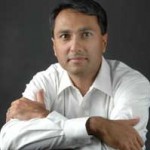
British academic Anthony Giddens claims that modernity has one chief characteristic: frequent interaction between people from different backgrounds. The chief question for religions is how to engage this diversity. Or, as Peter Berger bluntly put it, “Modernity pluralizes.”
Many religious leaders view the presence of diversity as a serious challenge to their authority. They could once pass down their ways of being, believing, and belonging to the next generation without multiple sets of other ways competing with them. To draw from Berger again, where they could once reasonably present their traditions as fate, now the next generation views those ways as a choice.
I have a different view. I believe the presence of diversity ought to be a great gift to religions. I believe the central teaching of every great religion is how to treat other people, especially those who are not like you. Consider the vaunted position of “the stranger in Exodus,” the importance of the Good Samaritan story to Christians, the focus on the Prophet Muhammad as a mercy unto all the worlds. Well, how we treat the stranger is no longer an abstract question, a Sunday school lesson waiting for application. The presence of diversity allows us all to be a “Good Samaritan,” a special mercy to a different community, almost all the time.
In other words, diversity gives us the opportunity to practice our faiths.
Many religious institutions have come to reflect the world. Catholic schools, hospitals, and universities, Muslim social service organizations and health care centers—these institutions are filled with people from other faiths and no faith at all.
That is precisely why I think they are far better positioned than most churches, temples, and mosques to lead a God-and-neighbor centered twenty-first-century religious revival. They are already doing the work, they now only have to articulate the theology: we educate Jews and Buddhists because we are a Catholic university, we feed Hindus and Buddhists because we are a Muslim social service center.
______
Christian Smith, Director, Center for the Study of Religion and Society, and William R. Kenan, Jr. Professor of Sociology, University of Notre Dame

For as long as social scientists have been theorizing “modernity,” the dominant tendency has been to think about it in the singular—to conceptualize modernity as entailing one dynamic, one set of causal processes, one telos, leading all pre-modern societies engaged in modernization to converge on the increasingly similar-looking outcome of “modern society.” Different theorists emphasized the heart of modernity as rationalization, patterns of socioeconomic “development,” the homogenizing effect on societies of institutions like industrial factories, and so on. However it was theorized, conceiving of modernity and modernization as a singular force, process, or fact led most observers (until more recently) to expect all societies to become increasingly similar in being rational, “enlightened,” secular, liberal, economically prosperous, and politically democratic.
It is true that some causal forces of modernity are indeed socially homogenizing. But modernity also clearly entails causal forces that do not lead to convergence and similarity. Explaining modernity’s continued multiplicity has forced us to reckon more seriously with culture. Modernity is not simply about reproducing institutions, such as factories, universities, and legislatures, which then supposedly produce cultural convergence. Modernity is also itself a particular cultural project. It is ultimately about the vision (though not necessarily the accomplishment) of humanity taking control of history, of “man” driving history to a future of “his” own choosing. In this sense, modernity is not so much an inevitable stage in evolutionary development. It is actually, ironically, another human “spiritual” project involving humans making cultural meaning, answering big existential questions, trying to define what is real and ultimate and sacred and so worth living for. There turn out to be many possible ways to proceed, which, lo and behold, produces the multiple and contending modernities we face today. And that is well worth better understanding.













Robert Orsi’s reflections are very brilliant! If most scholars of Catholicism were as honest and forthright as Orsi, Catholicism would make great advances in the public arena, rather than becoming more insular. Thank you, Dr. Orsi!
What is the status of those religious denominations that embrace what Professor Orsi describes as “the protections and rights offered by secular modernity, including women’s equality, the freedom of sexual identity, respect for children’s autonomy, and reproductive choice?” How are the mainline Protestant denominations doing in Europe and America over the last few decades?
The vitality of religiosity in the contemporary world has an unmistakable venue. For better or ill, that venue is not safely “modern” institutions.
Religious revival and growth are most evident in anti-Western madrassas, in Evangelical fundamentalism, in ultra-orthodox Judaism, in revived Hindu traditionalism, and among Catholics in ultramontane movements rebelling against what they perceive as the alleged modernist excesses of Vatican II. Sure there are exceptions—like in the charismatic spiritualism of immigrant Latinos. But we need to appreciate the larger pattern here.
We might not want to admit it, but any predictions about what would happen to a denomination if it unproblematically embraced modernism’s mores and values?